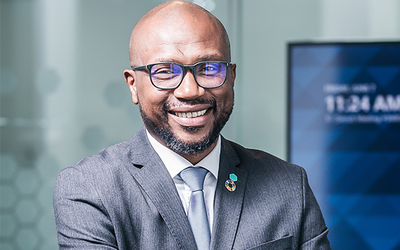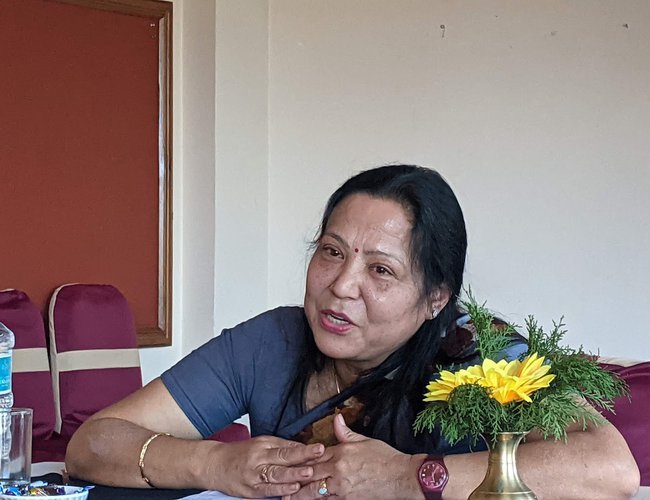
Reflecting on your time as vice chancellor in the past two years, what are your impressions?
The past two years have been a whirlwind of challenges and opportunities. The absence of a VC for nearly eight months led to a misalignment in administrative and managerial tasks. However, I viewed these challenges as chances to revitalize the NOU as a dynamic higher education institution. By fostering a spirit of teamwork, I have dedicated myself to transforming the university and positioning it as a leading institution for high-quality education in the nation. The dynamic landscape of higher education in Nepal offers both hurdles and prospects.
What strategies have you employed to achieve these goals?
As a management student, I am a firm believer in the power of teamwork and collaboration. This belief has guided my decision-making process, always seeking input from the team. We have cultivated an environment that encourages a sense of ownership for our collective achievements. It's crucial to progress based on meritocracy. Throughout my tenure as a dean, I have always adhered to this principle, and I continue to do so as vice chancellor.
Raised and spent over three decades in the teaching profession in Kathmandu, you have also become a role model. What have been your reflections on your two years as vice chancellor?
I am immensely proud to have been the inaugural vice chancellor of NOU. The government recognized my contributions to the NOU and the higher education sector when I was appointed. My primary goal now is to ensure the institutionalization and sustainability of the NOU. During my initial four-year tenure as dean, we laid the foundation for the university. As vice chancellor, my focus has been on maintaining and enhancing its quality. I've been concentrating on enhancing, fortifying, and maintaining the existing programs. Additionally, I've been striving to improve the university's human resources. A primary focus is on preserving the faculty.
What about the construction of physical structures?
I'm deeply concerned about the university's infrastructure. I've been involved in the construction of our own building on land provided by the government. The National University of Thailand owns nine acres in Sanothhimi, and I'm currently exploring funding options for a new building. We need our own facility.
What about the university's relationships with other institutions?
We aim to progress in establishing Memorandums of Understanding (MoUs) with other universities both within and outside the country. I'm also working to foster collaborations with both national and international universities. In times of limited resources, such partnerships are crucial. To achieve this, we must develop our human resources to be innovative and creative.
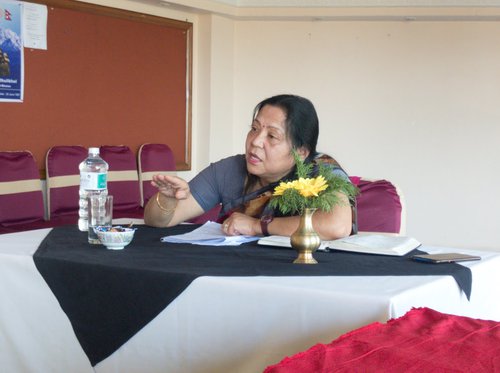
How do you decide on new programs?
We introduce new programs based on market demand. As a new university, I've prioritized programs that can serve a large number of students with market needs. Across all three faculties, we review our programs regularly. Following the COVID-19 pandemic, we realized the need for a new educational model, which has become a necessity. We are committed to providing training and support to our faculty.
What's the current state of the university's human resources?
In my first four years as dean, we've made every effort to develop our own faculty. As the vice chancellor, I'm focused on recruiting new professors. My strategic plans extend beyond my current term. To maintain our faculty, we rely on two main sources: student fees and government grants, which are limited. I'm advocating for an increase in our budget from the government.
What's the current condition of the Academic Schedule?
The Open University adheres to its academic schedule, announcing the results and conducting examinations. Each of our departments follows this schedule. With six years of experience in various roles within the university, I've learned that with proper planning and execution of admission, class sessions, examinations, and their outcomes, seemingly impossible tasks can be achieved. It's crucial to devise a plan initially and allocate resources accordingly. It's entirely possible to adhere to the academic calendar.
What are your objectives?
Receiving comprehensive support from all parties involved is a necessity. I've engaged in collaboration with everyone. My goal is to foster an environment that prioritizes quality education and an academic setting. A significant advantage is our team of qualified and dedicated teachers. My efforts are directed towards elevating the Open University to be recognized as the premier choice for students seeking high-quality education.
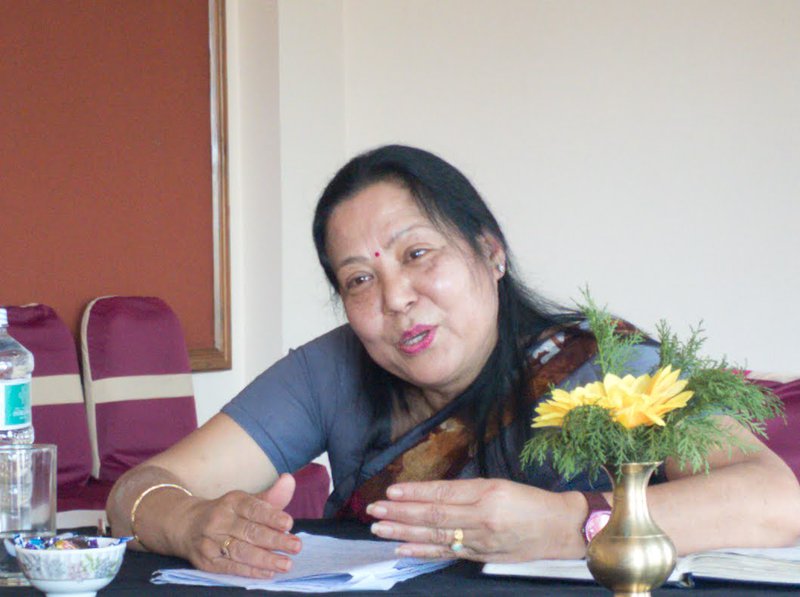
As the Chancellor, what alterations have you implemented in the curriculum?
Upon assuming the role of Chancellor, I've shifted the focus of our programs towards market dynamics and their needs. The National Open University of Nepal (NOU) has begun to tailor course offerings and curricula based on demand. We are emphasizing skill-oriented programs that are in high demand within the job market. Our education must align with employment needs, which necessitates high-quality teachers and students. My previous experience as Dean of the Management and Law Faculty has been instrumental in this process.
How relevant is your institution?
In Nepal, there are 11 universities and four Medical Health Science Institutes. Among these, the National Open University of Nepal is the youngest. Our university sets itself apart from the others due to our unconventional approach. Established with the mission to provide access to education for those who face barriers in traditional learning settings, affordably, NOU is dedicated to equipping students with the necessary knowledge, skills, and abilities to enhance their employability, engage in scholarly pursuits, meet personal or social needs that are beneficial to the nation, the market, and even global demands.
What is the need for Open University in Nepal?
Open University (NOU) is committed to bridging the educational gaps by ensuring everyone, regardless of location, time, and pace, can access quality education. Through its comprehensive approach to education, including rigorous curriculum development, support for students, and innovative teaching strategies, NOU aims to provide opportunities for both market demands and individual growth. Our goal is to offer education that matches or surpasses that of traditional higher education systems, catering to the busy lives of working individuals who can learn from their own surroundings.
What about the academic programs?
We offer a wide range of academic programs including bachelor's, master's, M.Phil, and Ph.D. degrees. As an institution previously headed by a dean of Management and Law, we also include BBS (Bachelor of Business Studies) three-year programs. Our BBS programs adhere to the principle of making education accessible to everyone, with minimal tuition fees and accepting all applicants. We also have MBA, Master's in Science and Development Management and Governance (MSDMG), focusing on training qualified professionals for federal structures and enhancing human resources for development at the federal level. Our programs attract students from diverse backgrounds, including government officials, local government employees, and development workers. Additionally, we offer master's programs in science and are actively pursuing more programs.
Looking at the current state of things, how do you perceive it?
We are optimistic about our ability to meet the educational aspirations of individuals eager to pursue higher education through our open, distance, and blended learning programs. We invite you to be part of our university journey and receive a well-rounded education. Our approach not only provides the necessary knowledge but also supports career advancement and equips students with the skills to contribute to the nation's development. I am excited to welcome you all to our university.
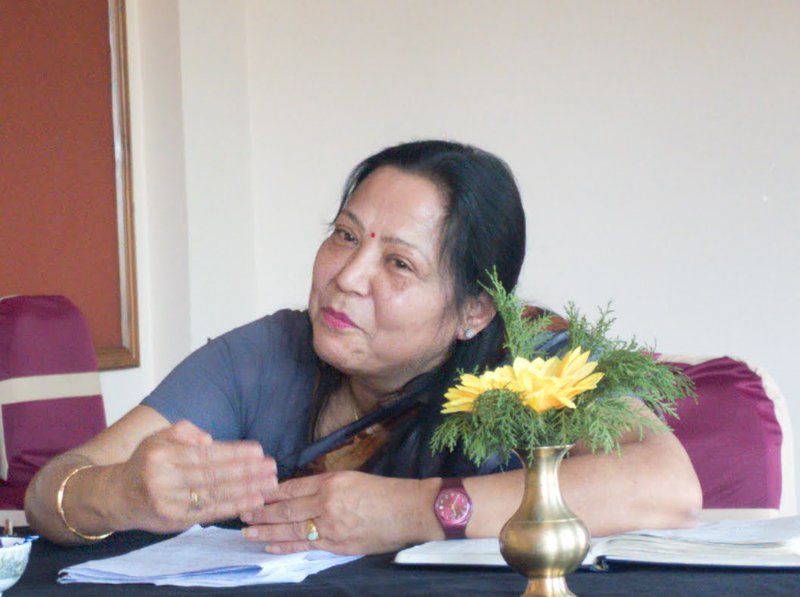
What are the main obstacles you face?
The primary obstacles include the challenge of aligning education standards, curriculum structures, and quality assurance processes across higher education institutions like NOU to ensure a consistently high-quality education for all students. Furthermore, establishing partnerships with universities in neighboring countries is crucial in today's globalized environment to foster academic exchanges, research collaborations, and the sharing of resources.
Despite having numerous universities, a large number of Nepali students are choosing to study abroad. How do you view this situation?
Addressing the issue of the significant number of Nepali students opting to study abroad is of utmost importance as it threatens the nation's intellectual capital and overall progress. Embracing the internationalization of our national higher education is vital to expose our students and institutions to global standards. Enhancing the quality of education, fostering innovation and research in line with international higher education trends, and introducing initiatives and innovations in open learning to shape the future of higher education are crucial steps. NOU is actively working on these initiatives and aims to create accessible, self-directed learning environments for students from all walks of life.

Keshab Poudel
Poudel is the editor of New Spotlight Magazine.
- ETFC Nepal is focused on expanding distribution and transmission to the private sector: ETFC Chair Dr. Dhital
- Jul 05, 2025
- FOURTH PROFESSOR Y.N. KHANAL LECTURE: Nepal-China Relations
- Jun 23, 2025
- Colonel JP CROSS: Centenary Birthday
- Jun 23, 2025
- REEEP-GREEN: Empowering Communities with MEP
- Jun 16, 2025
- BEEN: Retrofitted For Green
- May 28, 2025


